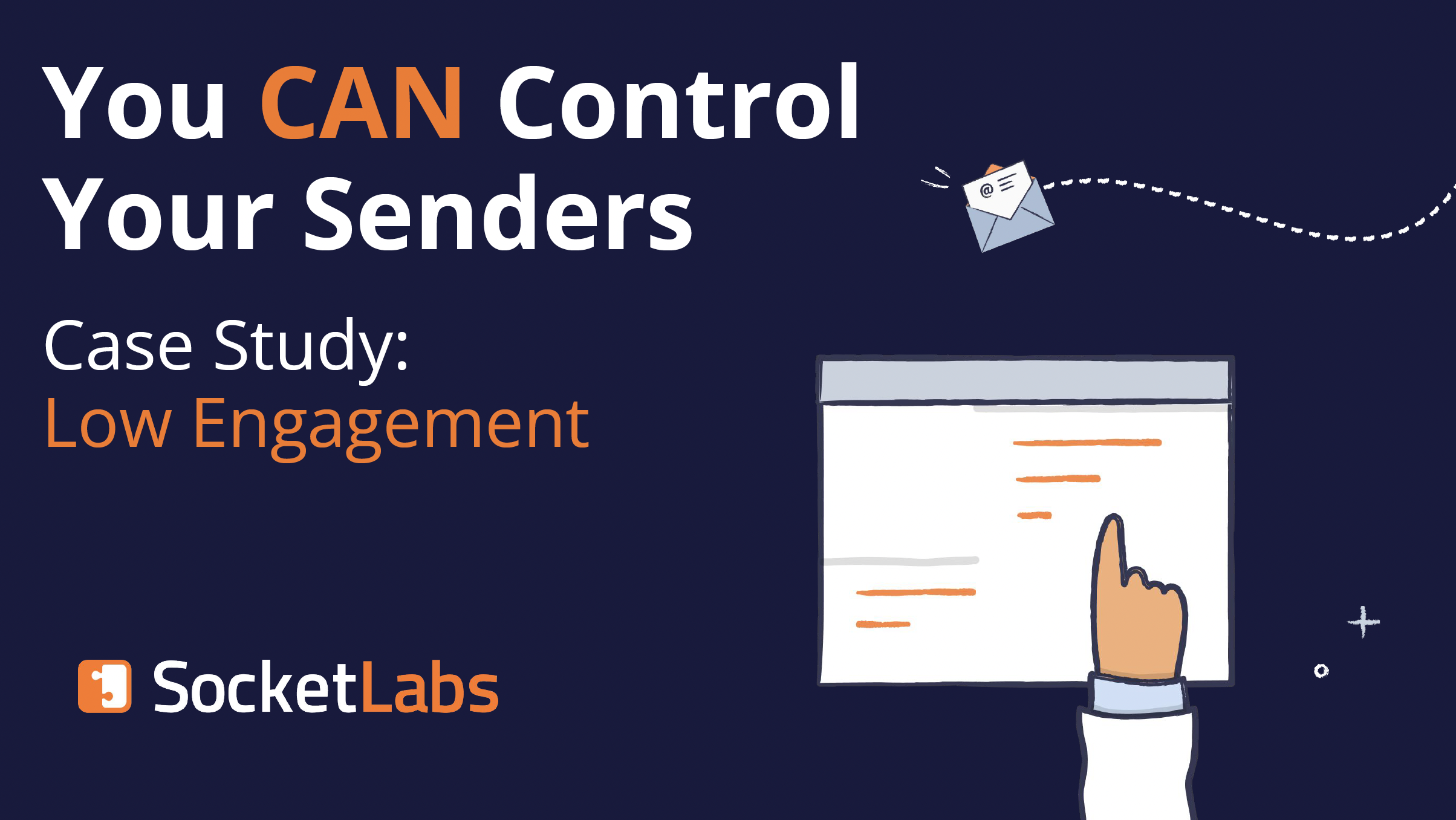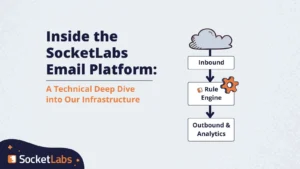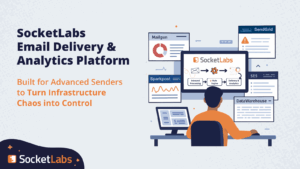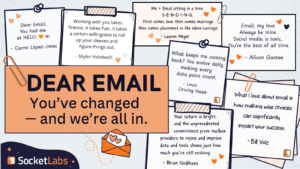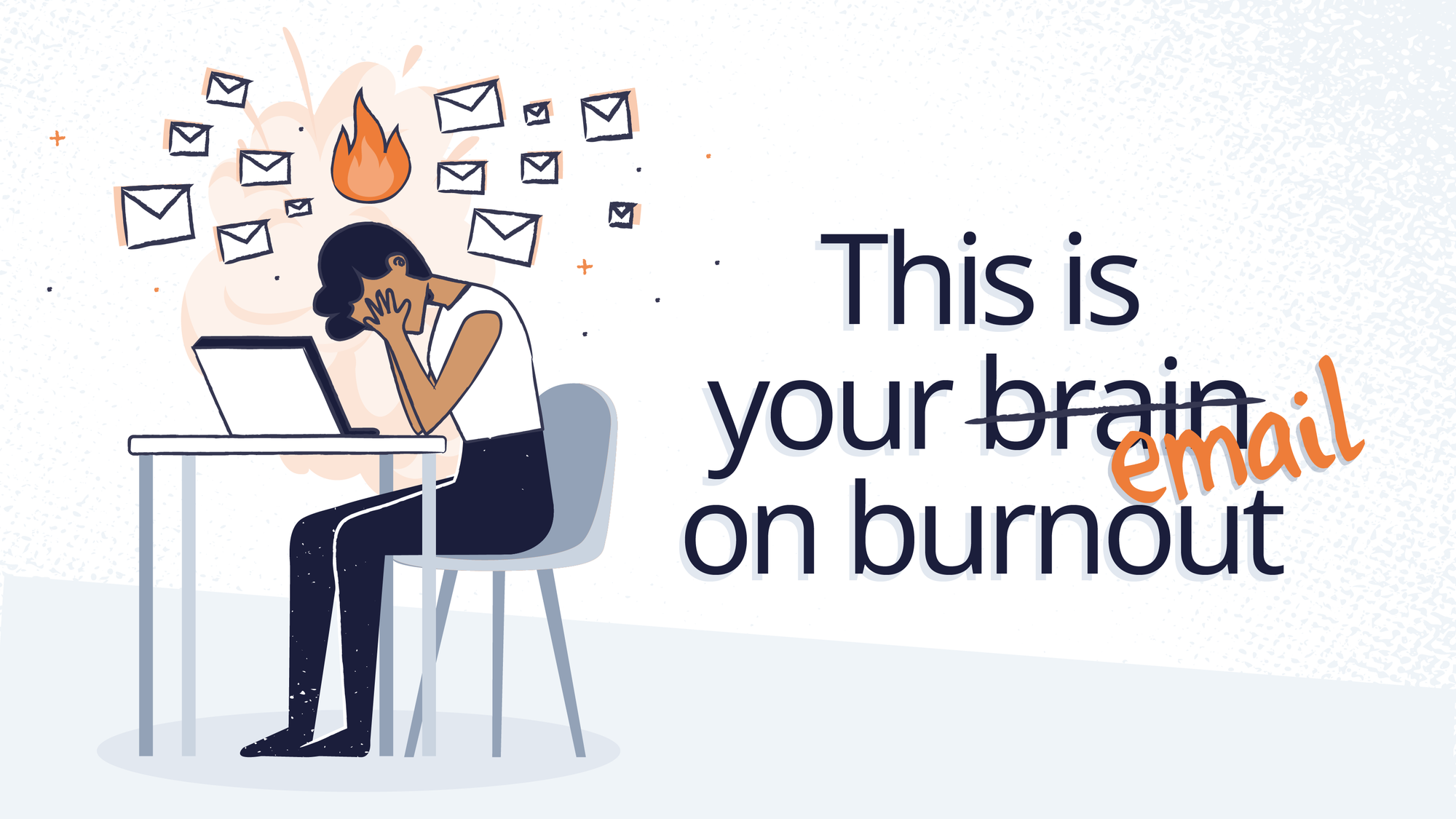
We are all exhausted
Burnout: the word of the year
Well….multiple years.
I had the pleasure of talking about two of my favorite topics at UNSPAM in Chicago: burnout and recovering from an email disaster. The experiences of discovering you’re burned out and finding yourself on a blocklist are extremely similar, and so is the kind of advice you get for both. Luckily, so is recovery.
Let’s walk through it.
Burnout is a bummer
Burnout is defined as, “Feelings of energy depletion or exhaustion. Increased mental distance, or feelings of negativism or cynicism related to one’s job.”
While true, that’s pretty clinical.
So, I talked to a bunch of people in my professional circles to understand what burnout really looks like. People often noted feelings of isolation and desperation in getting their brains to focus on work, only to find themselves doing ANY OTHER TASK to avoid it. They also felt compelled to sacrifice their vacation days, which could provide at least some relief, because of their anticipated anxiety over all the stuff they could possibly miss while gone! That’s an ugly cycle and one people don’t realize they’re in until they’re…well…burned out.
Getting blocklisted is also a bummer
There’s nothing quite like the sinking feeling you get when you realize you’re completely burned out… except the feeling you get when you find your IP address has hit a major blocklist like Spamhaus.
A blocklist is a (generally) publicly available real-time database used to report IP addresses or domains used to send email as a “known” source of spam. Mailbox providers (such as Gmail or Yahoo) can look up the reputation status of any IP address or domain to help determine if an email should be accepted or rejected into their servers.
This realization usually dawns on you when you see a sharp spike in bounces or spam complaints. But…why did this happen?
You can fix both burnout and blocklisting
When it comes to burnout, usually you’ll be encouraged to take a vacation, especially by companies who hope you come back totally UN-burned out. When it comes to blocklisting, you’re usually told to just get off the list as soon as you can, doing whatever you’re told needs to be done.
Neither “solution” addresses the root issue. A vacation isn’t going to alleviate your burnout and getting off that blocklist isn’t going to solve the root cause of your email issue.
The real solution starts with asking yourself a very simple question…
How did I get here?
Let’s walk through an example where you discover you’ve been listed with a major blocklist operator.
Q: Why are we listed?
Look at the guidance provided within the listing itself to figure out what path to walk down with more specific questions. Find the date of the listing, and review the emails sent within the few days prior to that timeframe. See anything unusual on those sends? A spike in sending volume or negative reactions from recipients, or perhaps a notable change in content or segmentation. Also consider some of the choices you made: Did you send to an old list? Did you forget to secure your inbound forms from bot abuse?
In this example, let’s say you wind up with a listbombing issue. This is when your list is full of addresses submitted by bots.
Q: Why do we have a listbombing issue?
A: We didn’t secure our forms with a CAPTCHA.
Q: Why didn’t we secure our forms?
A: We didn’t think about it being a vector for attack.
Q: Why don’t we go ahead and add CAPTCHA to protect them?
A: Oh, yeah, sure, that seems fine.
What did we learn by slowing down and walking through the issue instead of trying to immediately get off the list at all costs? We learned our forms aren’t secured and that we’re hitting a bunch of spam traps. If we don’t secure our forms, we’re likely to keep hitting spam traps, and we’ll wind up being re-listed. Now that we’ve diagnosed the root cause, we can actually do something about it to not only get off the list this time but keep ourselves off the list in the future.
If you take the same approach to burnout, you can better understand why you’re feeling burned out and make meaningful changes to relieve it. Maybe it’s as simple as new scenery or as complicated as finding a new job. But once you figure out the root cause, you can take steps to not only help yourself feel better now but avoid burnout in the future.
Conclusion
Our brains love quick fixes. But avoiding that next blocklisting (or bout with burnout) requires changing the practices that landed you there in the first place. Without proper prevention, there is continued risk.
When it comes to blocklistings and burnout, best practices should be your best friend. Stay in tune with performance—both yours and your email programs’. Most of all, take care!
Brains love quick fixes.
You need to slow down, ask “why”
Gently coach yourself.

